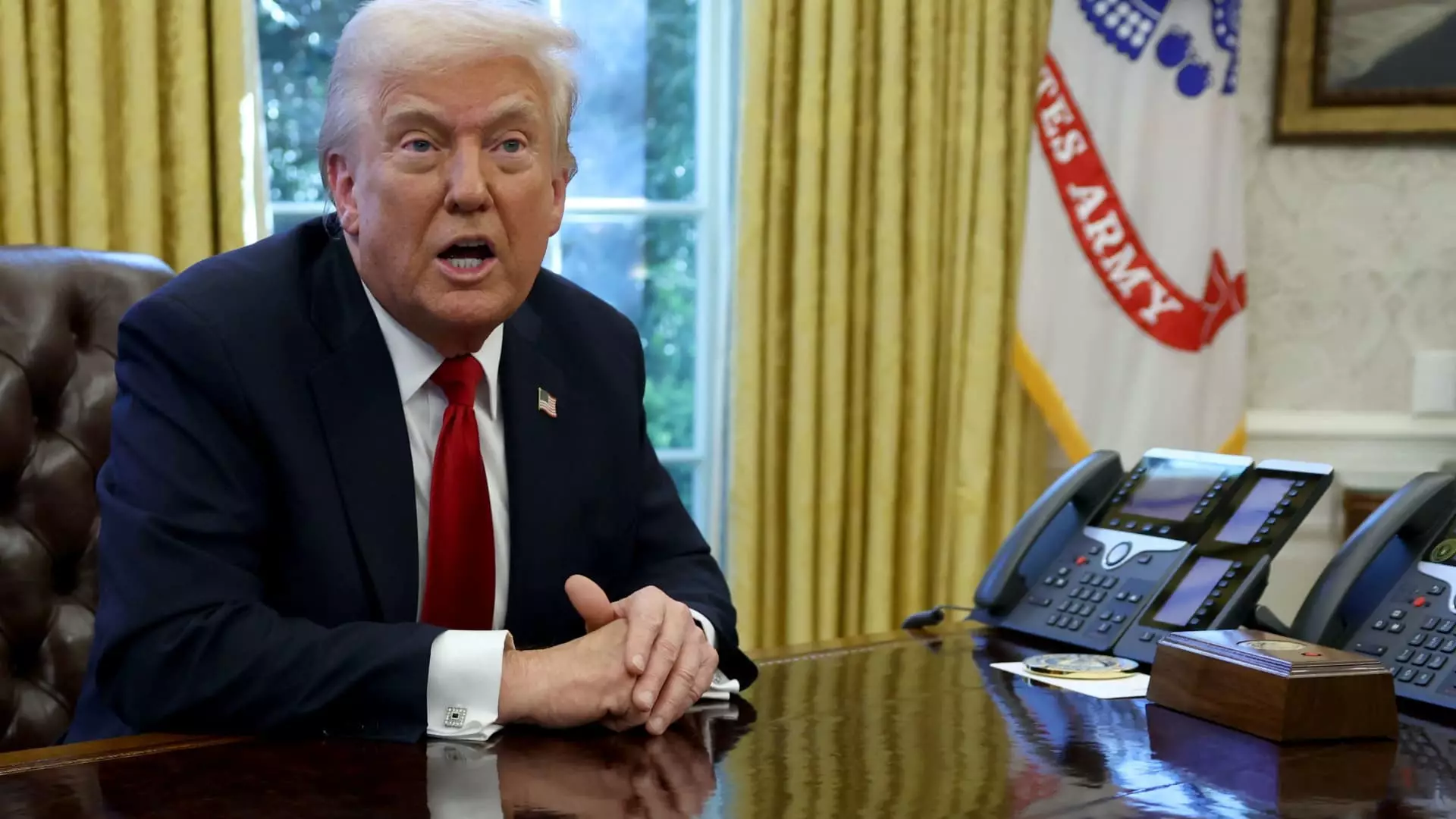The recent announcement by President Donald Trump to impose a sweeping 25% tariff on “all cars that are not made in the United States” marks a significant pivot in the ongoing dialogue between American manufacturing and global trade. The measure, ostensibly aimed at fostering domestic production, raises questions about the effectiveness and ramifications of such policies—especially in an era where the automotive industry is increasingly global. Most notably, this gambit appears to entwine closely with the interests of Elon Musk, Tesla’s CEO and a controversial figure who has stepped into the realm of government advisory while simultaneously running a billion-dollar enterprise.
Musk is positioned uniquely at the crossroads of innovation and geopolitical maneuvering. Although he remains primarily focused on steering Tesla and SpaceX, his role as a senior advisor to Trump—coupled with his significant financial contributions to the president’s campaign—adds a layer of complexity to the narrative. It’s an arrangement that many observers may find troubling; the mingling of corporate lobbying and governmental advisory often results in a landscape rife with conflicts of interest.
Tariffs and Tesla: An Uneasy Relationship
Tariffs, in principle, are designed to empower local businesses by raising the cost of foreign goods. However, in the case of Tesla, the company has expressed concern over the new tariffs’ potential adverse effects. With a supply chain intricately woven across international borders, Tesla relies on components from countries such as Mexico, Canada, and China. It’s important to note that, despite Trump’s optimistic outlook that these tariffs could be beneficial to U.S.-based manufacturers, the reality is far more nuanced.
The automotive industry, especially in the context of electric vehicles (EVs), thrives on innovation and rapid development cycles that often necessitate global sourcing. Tesla’s recent communications to the U.S. Trade Representative illustrate this point; while advocating for domestic localization efforts, they also acknowledge the inherent limitations posed by dependencies on overseas suppliers. This nuance poses the question: Will such tariffs ultimately backfire, hindering domestic production rather than fostering its growth?
The Broader Electric Vehicle Landscape
While Tesla is currently the dominant player in the American EV market, it faces mounting competition as more automakers pivot towards electric offerings. Giants like Ford and General Motors are expanding their EV lineups alongside newcomers like Rivian, complicating the competitive landscape. However, while domestic players gear up for a race to the electrifying future, outside competitors loom large—BYD from China exemplifies this threat. While currently barred from U.S. markets, BYD’s advancements in battery technology could still shape the contours of competition should those barriers fall.
In the face of these evolving dynamics, Tesla must navigate not only the intricacies of domestic policy but also the global implications of shifting trade dynamics. By failing to adapt to a rapidly changing environment, the company risks suffering market share loss to more agile competitors who can better manage supply chains amidst trade constraints.
The Political Theatre of Support
The backdrop of this tariff announcement is as theatrical as the policy itself. Trump’s showcasing of Tesla vehicles on the South Lawn, alongside lavish praises for Musk and electric innovation, encapsulates an attempt to merge national pride with corporate support. This spectacle raises critical questions regarding the authenticity of such endorsements. Are these gestures genuinely aimed at nurturing U.S. industry, or are they simply political maneuvers to galvanize voter support by championing an emblem of American progress in technology and clean energy?
While the initial reaction from stakeholders has been somewhat tepid, with shares in Tesla and other automakers dipping following the tariff declaration, the longer-term implications remain uncertain. Tesla is increasingly positioned not only as a car manufacturer but also as a symbol of innovation, standing at the precipice of change in transportation.
The path forward is fraught with challenges, both politically and commercially. Trump’s bold tariff stance could lead to repercussions that extend well beyond the immediate implications for Tesla, impacting the broader narrative of American manufacturing and environmental responsibility for years to come. As the industry gears up for this tumultuous road ahead, careful consideration of strategic alliances and supply chain dynamics will be crucial to ensure that the future of American electric vehicles remains bright.


Leave a Reply